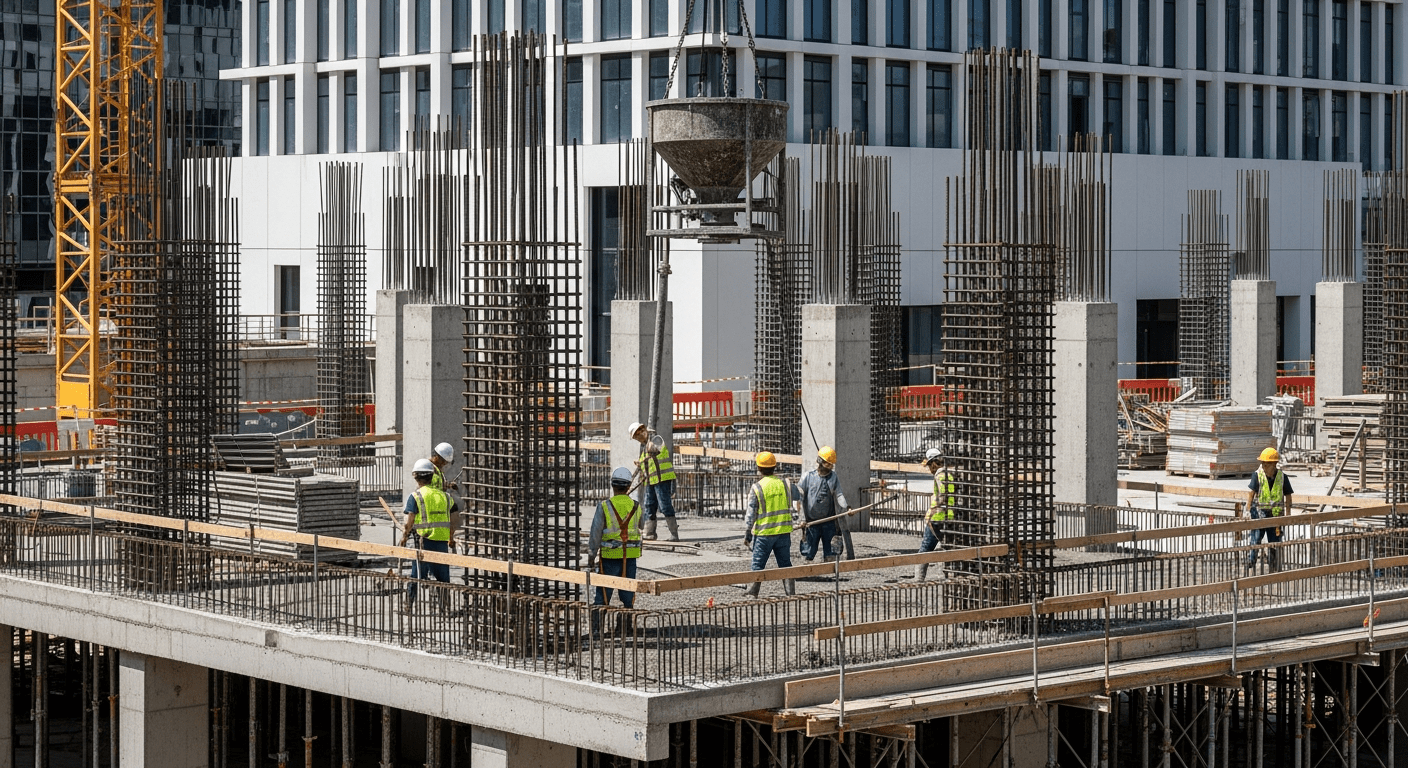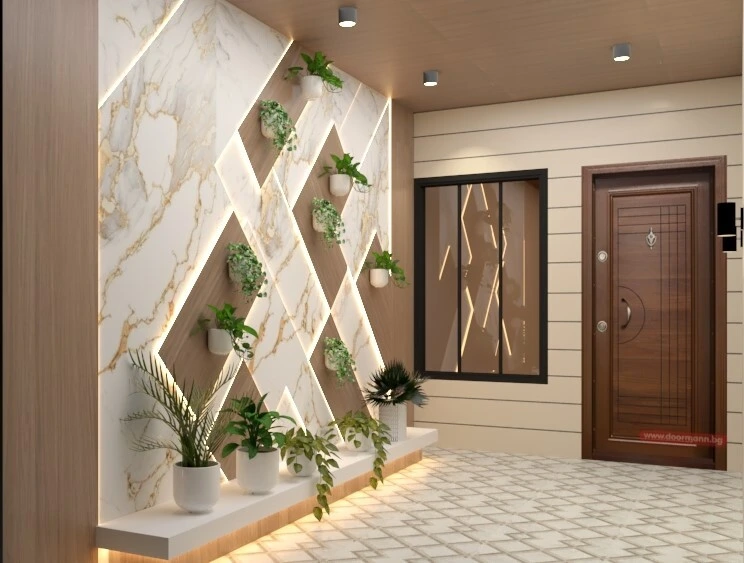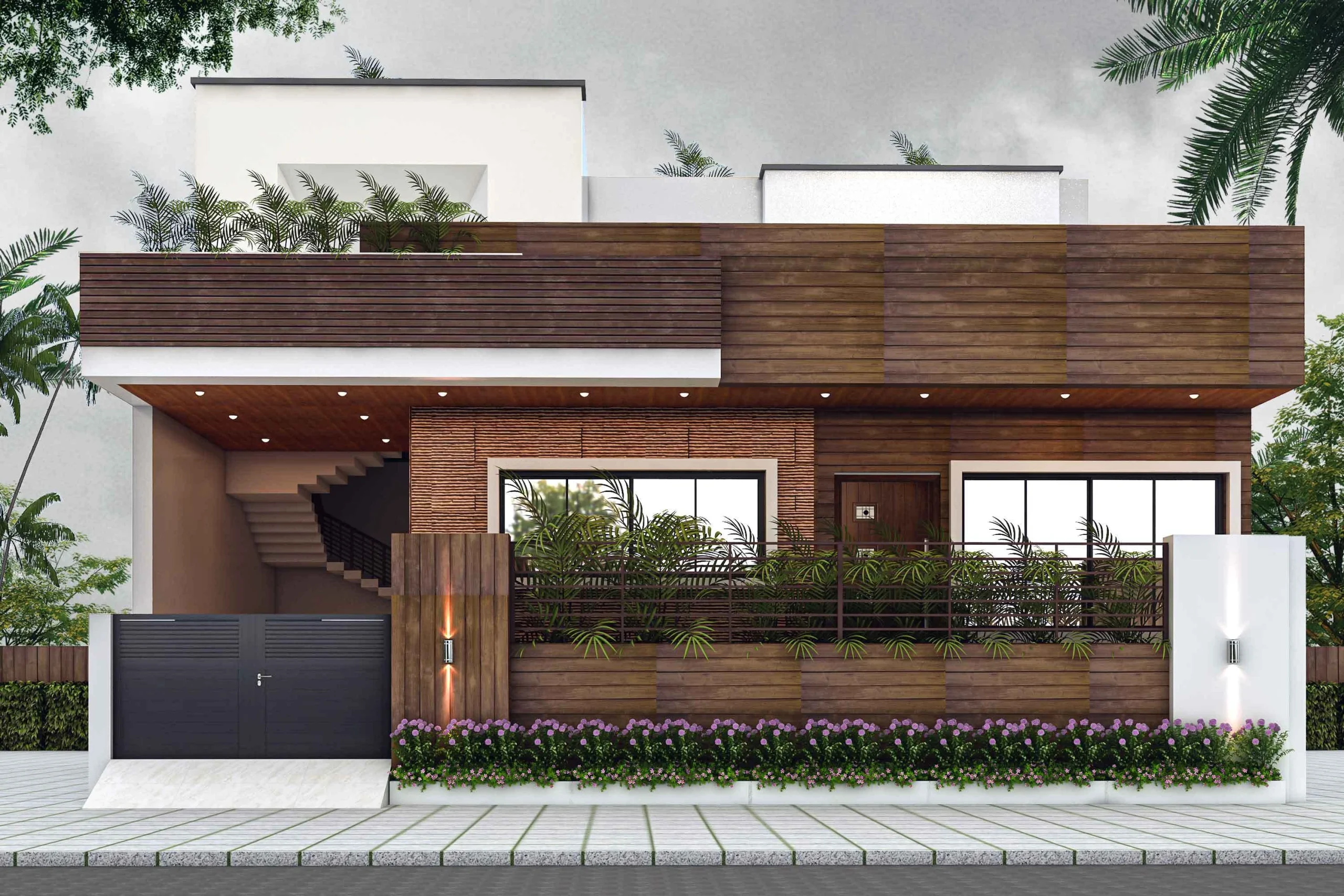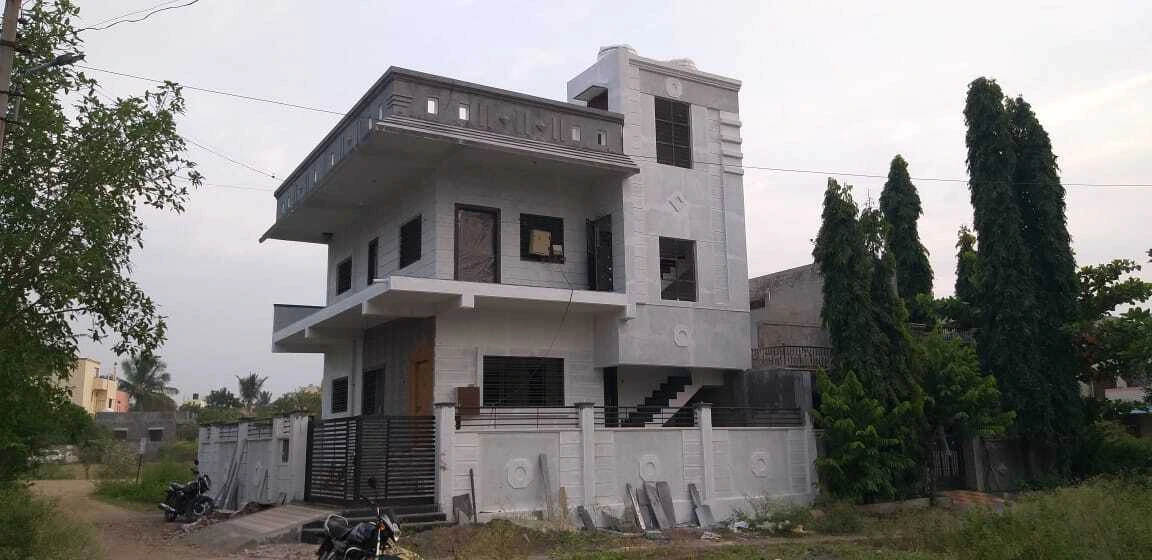Introduction
In modern construction, choosing the right structural material is one of the most crucial decisions an engineer or architect must make. Among the most common options are Reinforced Cement Concrete (RCC) and steel structures. While steel offers lightness and quick assembly, RCC continues to dominate construction in countries like India due to its cost-effectiveness, durability, fire resistance, and adaptability. Understanding why RCC structures are preferable to steel structures can help builders and homeowners make smarter, more sustainable choices for long-term investments.
1. Composition and Basic Concept
RCC is a combination of concrete (cement, sand, aggregates, and water) reinforced with steel bars, bringing together the compressive strength of concrete and the tensile strength of steel. On the other hand, steel structures are made entirely of metal members joined by welding or bolting.
This hybrid composition makes RCC highly versatile, affordable, and ideal for all kinds of construction — from residential buildings to commercial complexes. That’s one major reason why RCC structures are preferable to steel structures in most projects.

2. Cost Efficiency
When it comes to budget, RCC clearly takes the lead. The materials used in RCC cement, sand, and aggregates are locally available and inexpensive. Skilled labor for RCC work is also easier to find, while steel structures require specialized fabrication and installation expertise.
Pro Tip: According to several construction studies, RCC structures can be up to 30% cheaper than steel ones. Additionally, RCC requires minimal maintenance, unlike steel, which needs regular coatings or paint to prevent rusting. Cost-effectiveness is a major factor in why RCC structures are preferable to steel structures, especially for large-scale or long-term projects.
3. Fire Resistance
Fire safety is a key factor that distinguishes RCC from steel. Concrete is non-combustible and acts as a natural fire barrier, protecting embedded steel bars from direct exposure. RCC can resist temperatures up to 1000°C for several hours without losing structural integrity.
In contrast, steel starts losing half its strength at just 550°C, which can compromise safety during a fire. Therefore, in terms of fire protection and reliability, RCC structures are preferable to steel structures for schools, hospitals, and residential buildings.
4. Durability and Long Life
Durability is another aspect where RCC excels. The concrete cover around reinforcement bars protects them from corrosion and weathering, ensuring a long service life of 75–100 years with minimal maintenance. Steel, however, is more vulnerable to rust and requires frequent upkeep.
Moreover, in humid or coastal regions, RCC structures are preferable to steel structures because they withstand moisture and environmental changes better. That’s why RCC is commonly used in bridges, foundations, and dam structures meant to last generations.
5. Structural Stability and Rigidity
RCC structures are monolithic in nature; their slabs, beams, and columns act as one integrated system. This gives them excellent rigidity and resistance to vibrations. Steel structures, though strong, are more flexible and may require extra bracing for stability.
For earthquake-prone zones, RCC designed as per IS 456:2000 and IS 1893 ensures superior safety against both wind and seismic loads. Hence, when it comes to stability and safety, RCC structures are preferable to steel structures for long-term resilience.

6. Thermal and Sound Insulation
Concrete has a higher thermal mass than steel, meaning it naturally regulates temperature and provides insulation. RCC buildings stay cooler in summer and warmer in winter, reducing energy consumption.
Additionally, the density of concrete provides excellent sound insulation, minimizing noise between rooms and from outside. Steel structures, however, often need additional materials for soundproofing and insulation, adding to costs.
7. Maintenance Requirements: RCC Structure vs Steel Structure
One of the biggest advantages of RCC is its low maintenance. Unlike steel, which requires periodic painting and anti-corrosion coatings, RCC structures need only minor surface repairs or inspections over time.
This makes RCC structures preferable to steel structures for long-term cost savings and convenience. Their robustness also ensures fewer repairs even under heavy use, making them ideal for commercial and residential purposes alike.
8. Availability of Materials and Skilled Labor: RCC Structure vs Steel Structure
RCC materials, cement, sand, water, and aggregates are easily available across regions. Laborers trained in concrete work are also abundant. Steel construction, however, demands fabrication facilities and technical expertise, which may not be accessible everywhere.
In developing regions or rural projects, RCC structures are preferable to steel structures due to their accessibility and ease of construction.
9. Architectural and Design Flexibility: RCC Structure vs Steel Structure
One of RCC’s underrated strengths is its design flexibility. Since concrete can be molded into any shape before it sets, architects can experiment with curved walls, domes, cantilevers, and other creative forms.
Steel offers flexibility for large spans but becomes expensive when creating complex geometries. Thus, RCC offers a perfect balance of functionality and artistic freedom, another reason why RCC structures are preferable to steel structures in modern architecture.
10. Sustainability and Environmental Impact
Sustainability is a growing concern in construction today. RCC can be made more eco-friendly by using blended cements like PPC or PSC, recycled aggregates, and fly ash. Its longevity also means less reconstruction and lower resource usage over time.
Moreover, RCC buildings easily support green technologies such as solar panels, rainwater harvesting systems, and natural ventilation, promoting environmental harmony.
11. Suitability for Indian Conditions
For India’s diverse climate, RCC structures are preferable to steel structures due to their thermal efficiency, humidity resistance, and seismic strength. Whether it’s the hot summers, monsoon rains, or earthquakes, RCC performs exceptionally well.
Its affordability and adaptability make it the most practical choice for residential, commercial, and infrastructural projects across the country.
12. Quick Comparison: RCC Structure vs Steel Structure
| Parameter | RCC Structure | Steel Structure |
|---|---|---|
| Cost | Low, locally available materials | High, imported materials |
| Fire Resistance | Excellent | Poor |
| Maintenance | Minimal | Frequent |
| Durability | 75–100 years | 40–60 years |
| Thermal Insulation | High | Low |
| Soundproofing | Excellent | Moderate |
| Flexibility | High for small to medium projects | High for large spans |
This table clearly highlights why RCC structures are preferable to steel structures for long-lasting, budget-friendly, and safe construction.

Conclusion
Both RCC and steel have their respective strengths, but RCC emerges as the more practical, durable, and cost-effective option for most construction projects. It combines affordability with superior fire resistance, stability, and design flexibility.
Ultimately, why RCC structures are preferable to steel structures lies in their ability to balance strength with sustainability, making them the true backbone of modern infrastructure. From homes to high-rises, RCC remains the trusted choice for architects, engineers, and builders worldwide.
FAQs
1. What makes RCC structures better than steel structures?
RCC structures are more durable, fire-resistant, and cost-effective compared to steel structures.
2. Is RCC cheaper than steel for construction?
Yes, in some scenarios RCC is 25–35% cheaper due to locally available materials and lower maintenance costs.
3. Which structure lasts longer, RCC or steel?
RCC structures can last up to 100 years with minimal maintenance, while steel requires frequent upkeep.
4. Why is RCC preferred in Indian construction?
RCC suits India’s hot, humid, and seismic conditions, offering better insulation and long-term stability.
5. Can RCC be used for all types of buildings?
Yes, RCC is ideal for residential, commercial, and infrastructure projects due to its strength and versatility.




